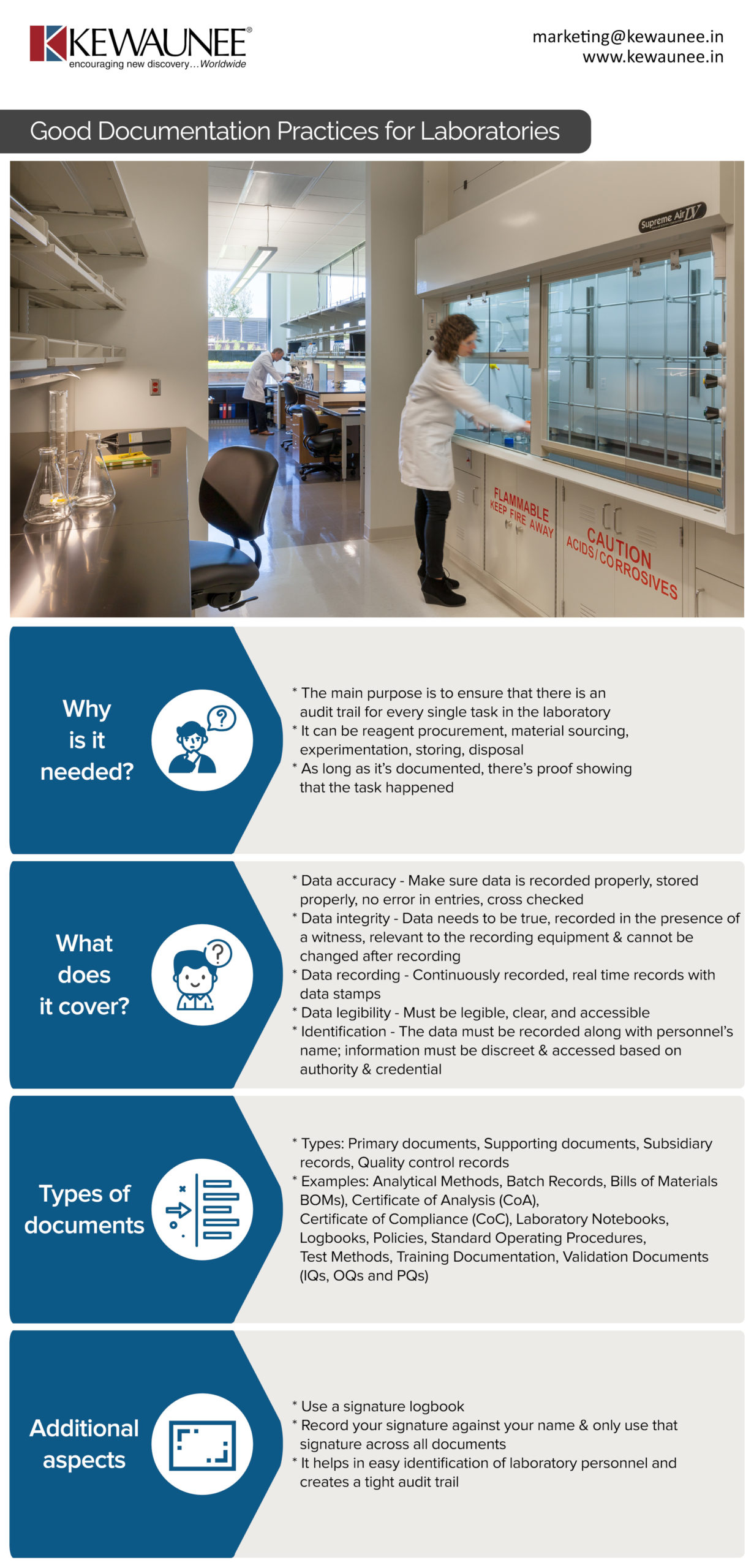Good Documentation Practices For Laboratories An Overview
Laboratory compliance is an often talked about topic but rarely given much heed to in practice. To ensure that your laboratory is following the right documentation practices, refer to our infographic below that details the different Good Documentation Practices.
| Key Pointers |
Aspects to consider |
| Why is it needed? |
- The main purpose is to ensure that there is an audit trail for every single task in the laboratory
- It can be reagent procurement, material sourcing, experimentation, storing, disposal
- As long as it’s documented, there’s proof showing that the task happened
|
| What does it cover? |
- Data accuracy — Make sure data is recorded properly, stored properly, no error in entries, cross checked
- Data integrity — Data needs to be true, recorded in the presence of a witness, relevant to the recording equipment and cannot be changed after recording
- Data recording — Continuously recorded, real time records with data stamps
- Data legibility — Must be legible, clear, and accessible
- Identification — The data must be recorded along with personnel’s name; information must be discreet and accessed based on authority & credentials
|
| Types of documents |
- Types: Primary documents, Supporting documents, Subsidiary records, Quality control records
- Examples: Analytical Methods, Batch Records, Bills of Materials (BOMs), Certificate of Analysis (CoA), Certificate of Compliance (CoC), Laboratory Notebooks, Logbooks, Policies, Standard Operating Procedures, Test Methods, Training Documentation, Validation Documents (IQs, OQs and PQs)
|
| Additional aspects |
- Use a signature logbook
- Record your signature against your name & only use that signature across all documents
- It helps in easy identification of laboratory personnel and creates a tight audit trail
|
Source: FDA News
Kewaunee, the global leader in total laboratory solutions, empowers organisations to achieve competitive advantage through safe, efficient, and contemporary laboratories. In existence since 1906, Kewaunee powers the laboratories for over 5,000 customers in more than 100 countries.











